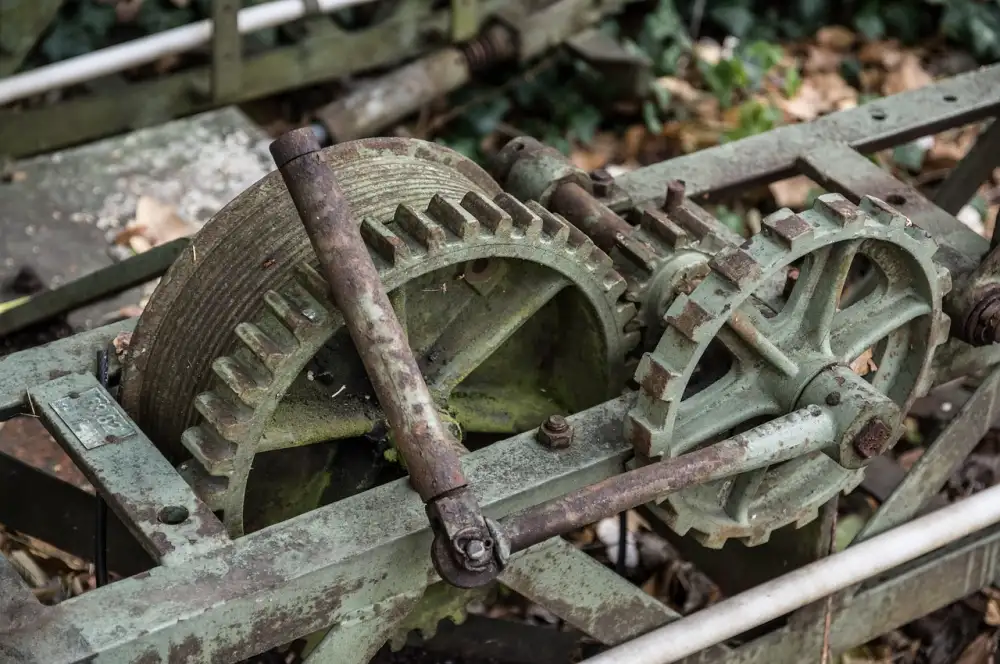Master the Art of Cleaning a Cast Iron Skillet: Essential Tips for Home Cooks

Cleaning a cast iron skillet may seem like a daunting task, but with the right techniques, it can be easy and rewarding. Cast iron skillets are beloved for their ability to retain heat and create deliciously flavorful dishes. However, they require special care to keep them in top condition. In this article, we will guide you through the essential steps to master the art of cleaning a cast iron skillet. By following these tips, you can ensure that your skillet remains clean, well-maintained, and ready to use for years to come.
Gather necessary supplies for cleaning
Before you embark on the task of cleaning your cast iron skillet, it's important to gather all the necessary supplies. Having the right tools will make the process much easier and more effective.
First and foremost, you'll need a stiff brush or scrubber specifically designed for cast iron. This will help remove any food particles or residue without damaging the skillet's seasoning. Avoid using abrasive sponges or steel wool, as they can scratch the surface.
Next, grab some mild dish soap or a cast iron cleaner. Contrary to popular belief, it is safe to use a small amount of soap on your cast iron skillet as long as you rinse it thoroughly afterward. Look for a gentle formula that won't strip away the skillet's natural oils.
You'll also need some hot water and a clean towel or paper towels for drying. Make sure to have a heat-resistant pot holder or oven mitt handy, as the skillet will be hot during the cleaning process.
Lastly, consider having some vegetable oil or flaxseed oil on hand for seasoning purposes after cleaning. This will help maintain the skillet's non-stick surface and prevent rusting.
By gathering these essential supplies beforehand, you'll be well-prepared to tackle the task of cleaning your cast iron skillet with ease and efficiency.
Preparing the cast iron skillet for washing
Before you start cleaning your cast iron skillet, it's important to prepare it properly. First, remove any food remnants or debris by scraping them off with a spatula or a stiff brush. Be gentle to avoid scratching the surface of the skillet.
Next, rinse the skillet under warm water to remove any remaining residue. Avoid using soap at this stage as it can strip away the skillet's seasoning. If there are stubborn bits stuck on the surface, you can use coarse salt and a paper towel to scrub them off.
Once rinsed, dry the skillet thoroughly using a clean towel or paper towels. It's crucial to remove all moisture from the skillet to prevent rusting. You can also place it on low heat on the stovetop for a few minutes to ensure complete drying.
By taking these steps to prepare your cast iron skillet for washing, you'll be ready for the next stage of cleaning and maintaining its longevity.
Cleaning the cast iron skillet
Cleaning the cast iron skillet is an important step to maintain its longevity and cooking performance. Start by rinsing the skillet with warm water, avoiding the use of soap as it can strip away the skillet's seasoning. Use a stiff brush or sponge to scrub away any food residue or stuck-on particles. For stubborn stains, sprinkle some coarse salt on the skillet and scrub gently. Rinse thoroughly with warm water to remove all traces of salt and food debris. Make sure to dry the skillet completely before moving on to the next step of seasoning.
Drying and seasoning the cast iron skillet
After cleaning your cast iron skillet, it is important to dry it thoroughly to prevent rusting. Use a clean towel or paper towels to remove any moisture from the surface. Place the skillet on a stovetop over low heat for a few minutes to ensure that all the water has evaporated.
Once the skillet is completely dry, it's time to season it. Seasoning helps create a non-stick surface and protects the skillet from rusting. Apply a thin layer of vegetable oil or shortening to the entire surface of the skillet, including the handle and exterior. Make sure to coat both sides of the skillet as well.
Next, place the skillet upside down in an oven preheated to 350°F (175°C). This allows any excess oil to drip off and prevents pooling. Let it bake for about one hour. After baking, turn off the oven and let the skillet cool inside.
Repeat this seasoning process several times to build up a strong seasoning layer. Each time you use your cast iron skillet, it will become more seasoned and develop better non-stick properties.
Remember not to use too much oil during seasoning as it can result in a sticky residue. A thin layer is all you need.
By drying and seasoning your cast iron skillet properly, you'll ensure its longevity and enhance its cooking performance.
Storing the cast iron skillet properly
Storing the cast iron skillet properly is essential to maintain its quality and prevent rust. After cleaning and drying the skillet, make sure it is completely cool before storing. Avoid stacking other pots or pans on top of it, as this can cause damage. To protect against moisture, place a paper towel or cloth inside the skillet to absorb any excess moisture. Store the skillet in a dry place with good ventilation to prevent any humidity from causing rust. By following these storage tips, you can ensure your cast iron skillet stays in great condition for years to come.
Tips for maintaining a clean cast iron skillet
1. Avoid using harsh detergents or abrasive scrubbers when cleaning your cast iron skillet. Instead, opt for mild dish soap and a soft sponge or brush.
2. After each use, rinse the skillet with hot water while it is still warm. This will help to loosen any food particles and make cleaning easier.
3. Never soak your cast iron skillet in water for an extended period of time as this can lead to rusting. Instead, wash it immediately after use.
4. If you encounter stubborn residue, create a paste using kosher salt and water. Scrub the surface gently with this paste to remove any stuck-on food.
5. Always dry your cast iron skillet thoroughly after washing to prevent moisture from causing rust. Place it on a stove burner over low heat until completely dry.
6. To maintain the seasoning of your cast iron skillet, apply a thin layer of oil after each use. This will help to protect the surface and prevent food from sticking.
7. Store your cast iron skillet in a cool, dry place with the lid slightly ajar to allow air circulation and prevent moisture buildup.
By following these tips, you can ensure that your cast iron skillet remains clean, well-maintained, and ready to create delicious meals for years to come!
Now that you have mastered the art of cleaning a cast iron skillet, you can enjoy the benefits of cooking with this versatile and durable kitchen tool. With proper care and maintenance, your cast iron skillet will continue to provide you with delicious meals for years to come.
Remember to always gather the necessary supplies before cleaning, including a stiff brush or sponge, mild dish soap, and a towel or paper towels. Preparing the skillet for washing by removing any food residue and gently scrubbing it will help ensure a thorough clean.
When cleaning the skillet, avoid using harsh chemicals or abrasive materials that can damage the seasoning. Instead, opt for gentle scrubbing and hot water to remove any remaining debris. Once clean, make sure to dry the skillet thoroughly to prevent rusting.
To maintain its seasoned surface, season your cast iron skillet regularly by applying a thin layer of oil and heating it on low heat. This will help protect against moisture and keep your skillet in top condition.
Proper storage is also essential for maintaining your cast iron skillet's longevity. Store it in a cool, dry place to prevent rusting and avoid stacking other cookware on top of it.
By following these tips for maintaining a clean cast iron skillet, you can continue to enjoy its excellent heat retention properties and even cooking results. So go ahead and whip up some mouthwatering dishes knowing that your trusty cast iron skillet is ready to deliver exceptional flavor every time!
Published: 12. 12. 2023
Category: Home



